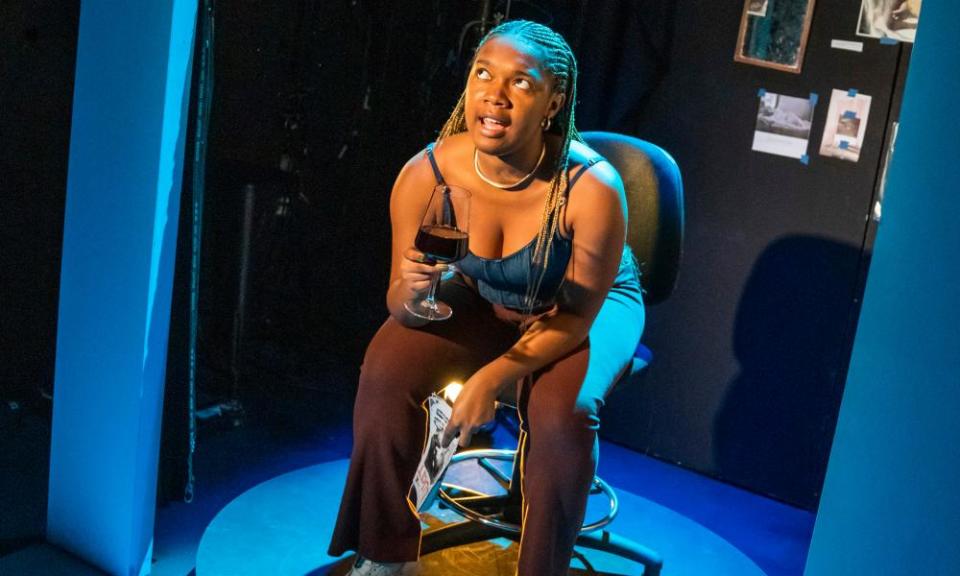Curious review – Jasmine Lee-Jones packs a punch with new solo show

Jasmine Lee-Jones made the fiercest of debuts with her audacious two-hander Seven Methods of Killing Kylie Jenner. This one-woman play is gentler and less febrile … until it throws a surprise punch that casts the play in a new hallucinatory light. Performed as well as written by Lee-Jones, it artfully takes us into a multi-voiced and multi-stranded story that seems ambling, perhaps even unruly, until the twist reveals its underlying discipline.
Directed by Anna Himali Howard, Lee-Jones plays a disaffected drama student, Jaz, who is pigeonholed into bit parts in a Restoration drama module. In her frustration, Jaz begins an archival exploration into Black British actresses of the past and an 18th-century runaway slave turned actor, Celia Edlyne, is brought to life.
Subtly drawing a line from Celia to Jaz, the piece asks questions of drama itself in connection to race and representation. But this aspect sits beside an otherwise contemporary story of friendship, queer identity and romance, told in language that juggles patois and poetry, sparking with witty repartee and humorous silliness.
There are bad chat-up lines at a gay club; some zingy back-and-forth in bed; and droll scenes played out at drama school, where Jaz is given the part of Servant Two – and Servant One is played by the only other black student in her class. Jaz’s louche best friend, Mon, appears intermittently, telling her own elliptical story, and a sudden love interest emerges in the form of an elusive man who is comical but rather too thinly drawn.

Camilla Clarke and Rosie Elnile’s stage design matches the tone with its whimsy, though seems a little too self-consciously cute at times: a hand passes props to Lee-Jones and curtains are whipped back to reveal more of the set. There is playful, cabaret-style lighting (by Laura Howard) and a four-poster bed centre stage.
Related: Playwright Jasmine Lee-Jones: ‘The theatre industry is full of isms and schisms and nepotism’
Characters lack roundedness and seem a little stock but Lee-Jones pulls it off with an overarching originality. Her script holds us with its humour, multiple voices and uneasy moments. In some ways it resembles Amanda Wilkin’s Shedding a Skin, a one-woman play about connection, loneliness and the desire to be seen and understood as a young Black British woman. But Lee-Jones’s drama has none of its sentiment and feels, at its heart, haunted and solitary, capturing the cabin fever of lockdown in its final twist.
The drama melts away quickly but the sense of absorbing storytelling stays and Lee-Jones proves herself not only a talented writer but also an actor with a sure and magnetic stage presence.
At Soho theatre, London, until 16 October.


